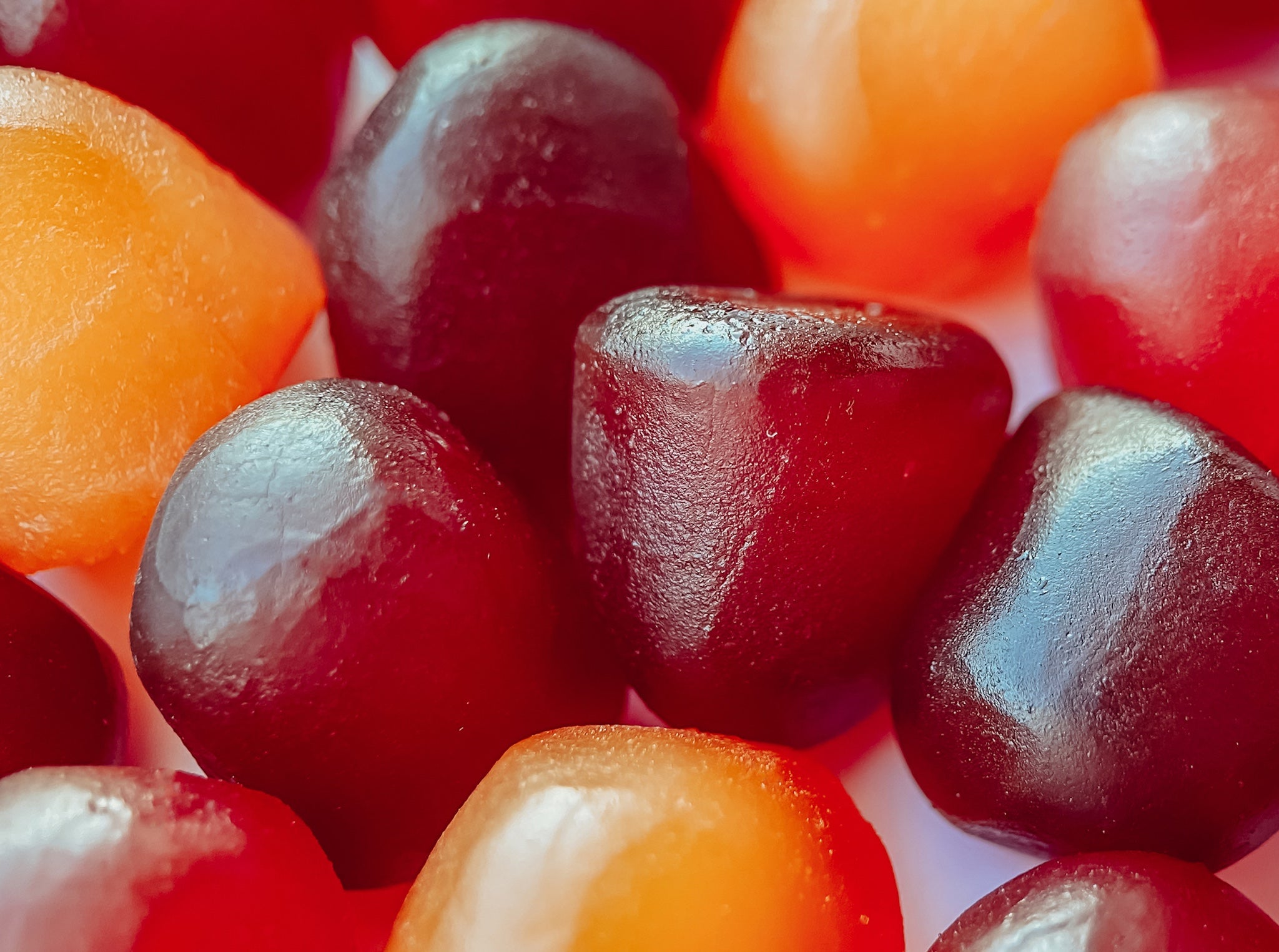The Independent's journalism is supported by our readers. When you purchase through links on our site, we may earn commission.
Candyceuticals: Do gummy supplements work or do they represent the infantilisation of wellness?
Are gummy vitamins just another example of performative wellness or do they actually work? Emilie Lavinia investigates


I’ve always been sceptical of gummy supplements. To me they’re for kids. They exist in the realm of Calpol and strawberry toothpaste. They’re not something a self-respecting adult would take. Especially when there are so many effective supplements available in what is now a hugely competitive and results-driven market.
But that doesn’t seem to have impacted the popularity of gummies. In fact it’s not kids driving the boom, it’s adults. Gummy supplements are everywhere and in some cases, they’re being marketed as highly effective luxury products with huge aspirational campaigns behind them.
According to biochemist and influencer Jessie Inchauspé, who goes by “Glucose Goddess” online, “If you have a bottle of vinegar gummies, go throw it out immediately. They are no better than having candy. Vinegar gummies contain two grams of sugar. That's as much sugar as in two candy gummy bears. They are not good for your health.”
I’ve been informed as much by several nutritionists in casual conversations about which supplements you should actually bother taking. Despite some brands being far better than others where sugar content is concerned, gummies have never scored particularly highly on my ongoing list of expert-approved supplements.
As a wellness editor, I’ve been sent a ton of variations on the gummy vitamin. And despite knowing they probably won’t impact my health, I’ve enjoyed testing them. My favourites are the “beauty” gummies from functional mushroom brand Dirtea. These cute little heart-shaped squishes taste like peach, contain tremella mushroom and biotin and supposedly contain no sugar whatsoever – though the first four ingredients are sweeteners and that’s before you even get to the mushroom content.
I’ve also been invited to sample the now somewhat iconic apple cider vinegar gummy in many iterations, as well as hangover gummies, gummies for period pain and perimenopause gummies for lessening hormonal symptoms. Which begs the question: why are candyceuticals such a big deal for adults? Can’t we just take a pill or stick a patch on? Unless you have a medical condition that means you can’t swallow a tablet, it’s surely not that hard to do?
I’d argue that there’s a shift at play here. As wellness becomes more fashionable, it’s become more watered down. Health is cool now, but being healthy? Unfortunately that does require some effort, which is why so many products now offer the opportunity to perform wellness, rather than the real deal. The “morning shed” trend is a prime example of how these types of products are making their way into our lives.
It’s easy to take a gummy supplement for your gut or your hair, skin and nails, because it’s equivalent to a delicious treat and makes you feel as though you’ve done something good for your body. Eating the right foods for your gut or skin consistently? That requires a lot more work, from shopping for and preparing the right foods to consuming them regularly – a nightmare if you’re not keen to eat 30 plants a week.
The watering down of wellness has resulted in the infantilisation of the industry. Complex workouts have given rise to “this one easy trick” and eating a healthy amount of protein has taken the shape of marshmallow rocky road protein bars that also taste suspiciously like candy.
The wellness industry is also openly targeting teens – the ideal consumers of brightly coloured mouth tape and ashwagandha gummies. But in a world where the rules of good health are now required to be cute, easy and that much sweeter in order to be followed, what impact is this having on our bodies?
Amy Peacock founder of Earth’s Secret says: “Gummies are an alternative way for people to take supplements instead of capsules, but depending on how many gummies they take a day, this could be similar to taking the same amount of jelly beans a day. As they both contain sugar or sugar alcohols.”
She adds: “Gummies can contain vitamins and minerals, but to be chewed like a gummy they will require additional ingredients like glucose syrup, sugar and pectin to create the gummy texture. This can dilute the active ingredient content and add unnecessary sugars. They also often need higher stabilisers and preservatives to maintain shelf life. ‘Healthy’ gummies will use sucrolose or aspartame most of the time.”

Aside from the added sugar and sweeteners transforming vitamins into sweeties, there’s also the question of whether gummies actually deliver any of the nutrients they claim to. Sweet fruity flavours have the power to trick the brain into believing it’s actually consuming something with a nutrient-dense profile when it fact, it’s mainly sugar.
Peacock also explains that many types of supplement are actually incompatible with the gummy format due to their sensitivity to heat. Gummies are made by heating and then setting all the ingredients, which can compromise the potency and bioavailability of probiotics, magnesium and vitamin D.
Joe Netherwood of Known Nutrition notes: “The supplement industry is awash with misleading claims and products that may not contain what they say. This is part of the industry I find incredibly troubling. There are now so many supplement brands sharing false information, especially through their social marketing.”
One of Netherwood’s chief concerns is the creatine gummy market. He explains that after a class action lawsuit in the US, concerns regarding the level of actual creatine in UK gummies were raised. Netherwood and his team sent creatine gummies made by several brands for testing at a leading third-party laboratory and one came back showing no detectable creatine at all.
“This case is just the tip of the iceberg in a largely unregulated industry where anyone can start a supplement brand,” he says. “There is no requirement to prove what’s in a supplement, only that it’s safe to consume. Even labelling regulations are full of grey areas and often overlooked. Gummies are an emerging, fast-growing category and the rapid rise of gummies over the last five years has led to new, inexperienced manufacturers rushing products to market without proper formulation or testing.”
Read more: The 80:20 training routine that can help you live longer according to a specialist trainer
Despite the ease with which you can take a gummy and how tasty they are, when it comes to the efficacy of their nutrient profile, they’re simply not as effective as a supplement in capsule form. “Capsules remain the best due to being able to choose a supplement with no additives or fillers and provide precise dosing, and offer better absorption than gummies” says Peacock.
“While gummies might seem more appealing, especially for those who struggle with pills, they represent a compromise between convenience and efficacy.”
Of course, capsules vary in quality too and in some rare cases you may find a gummy that actually offers a better nutrient profile than a capsule, however the capsule would have to be pretty poor for this to be the case. Ultimately, choosing a quality brand is a significant factor in whether or not you’ll feel the benefits of any supplement and the less sugar, fillers, additives and unnecessary ingredients your vitamins contain, the better.
If you’re not willing to give up on gummies, for whatever reason, Peacock advises checking the sugar content and looking for artificial colours before you buy. She also recommends considering the exact dosage you need to take to make an impact. “You may actually need to take more gummies to match capsule potency, but consider your sugar intake and how this will affect your gut health,” she adds.
Personally, I’d rather stick with a capsule, a patch or an oral solution when it comes to supplements. Or better yet, getting the essential nutrients my body needs from a varied diet – this simply isn’t something you can cheat at, no matter what the next big gummy vitamin campaign tells you.
Read more: I’ve lived with painful periods for 20 years, could ayurveda be the answer?
Join our commenting forum
Join thought-provoking conversations, follow other Independent readers and see their replies
Comments



Bookmark popover
Removed from bookmarks